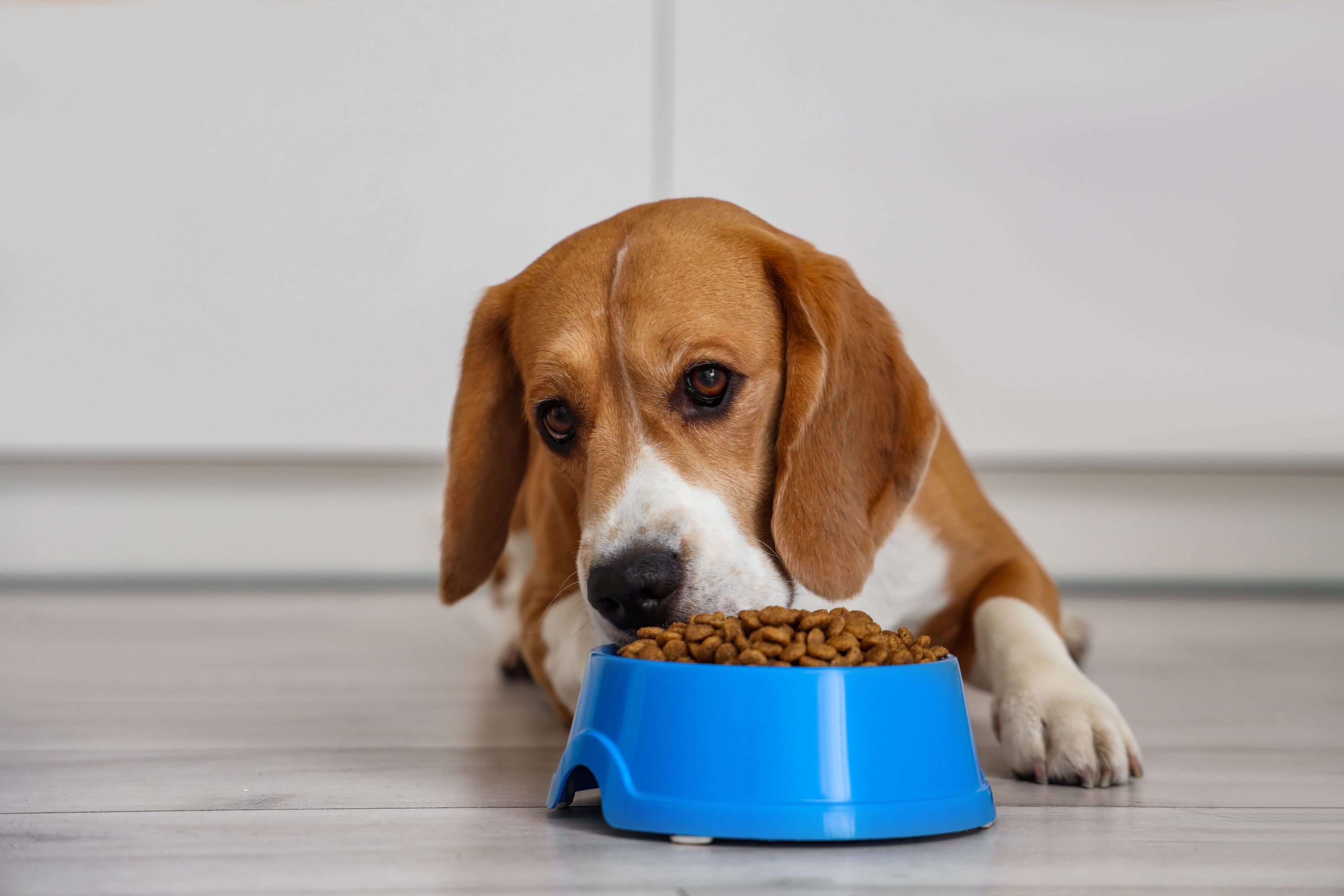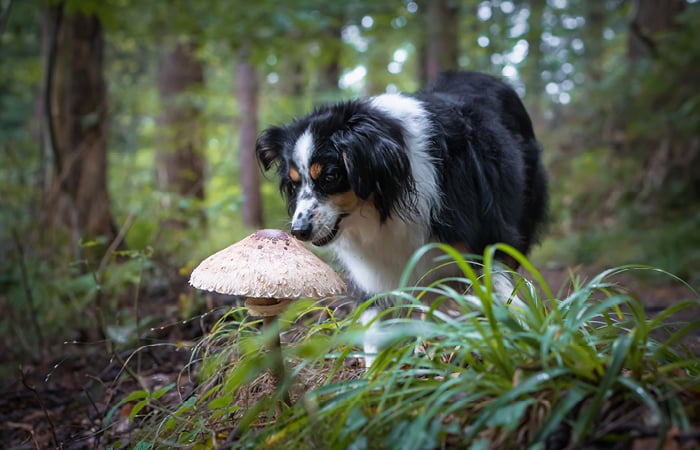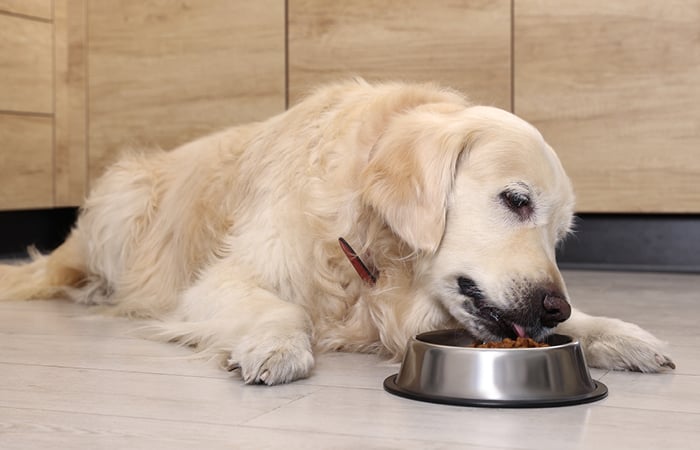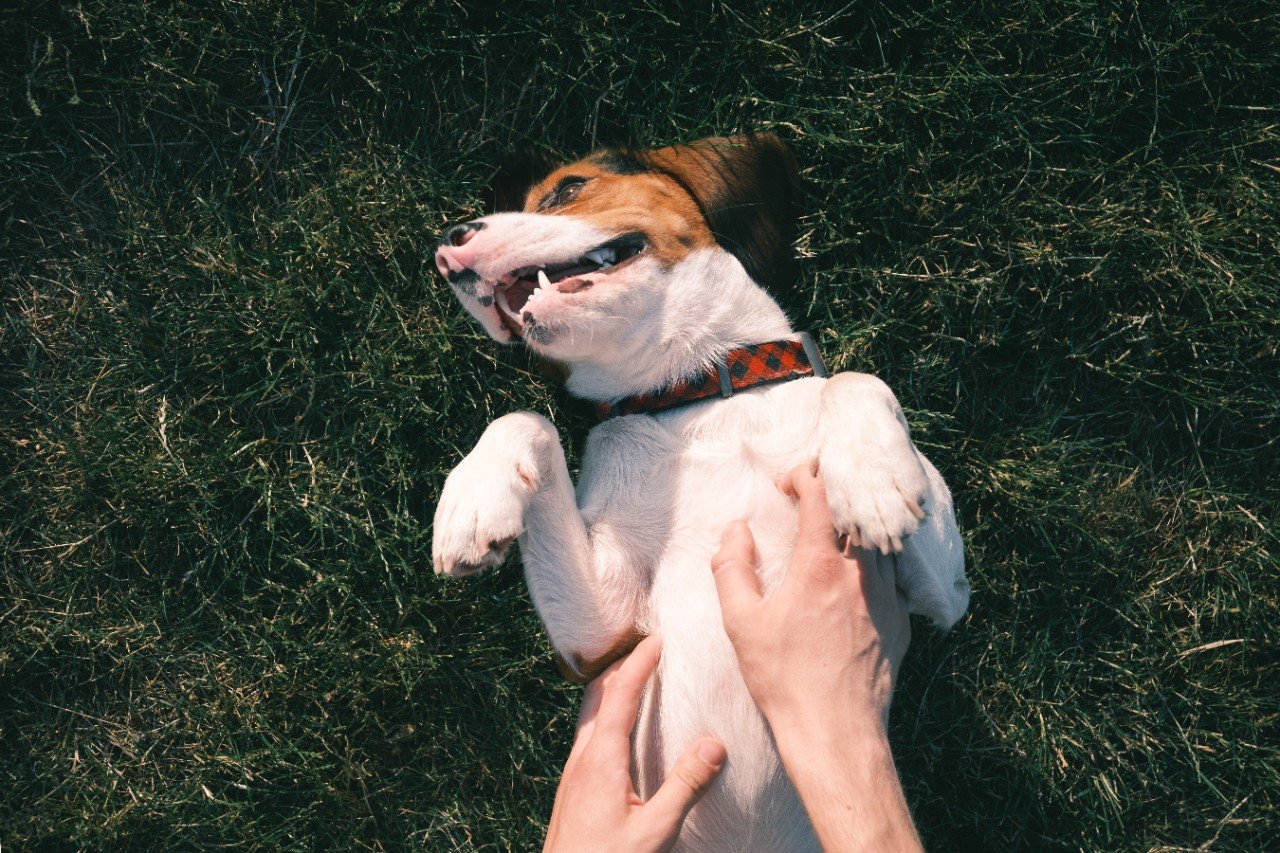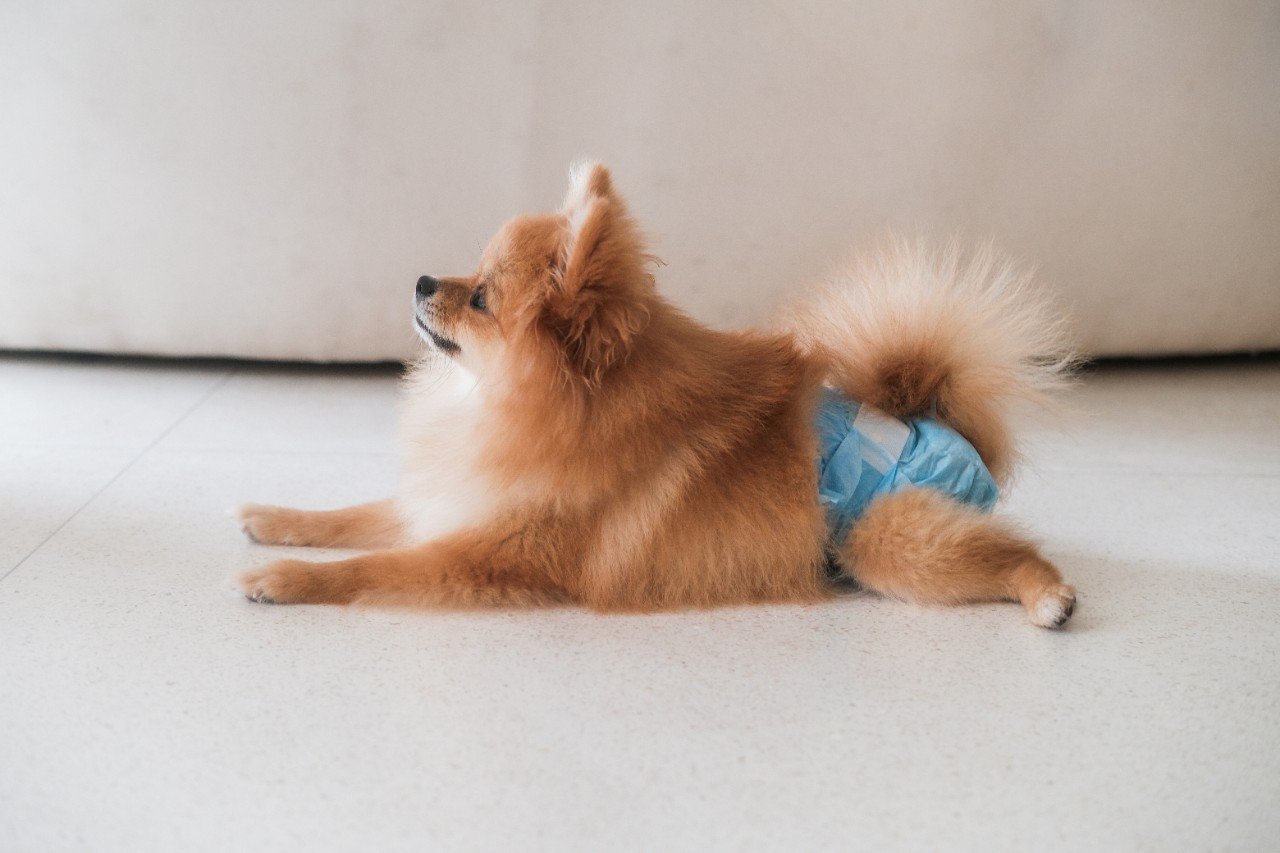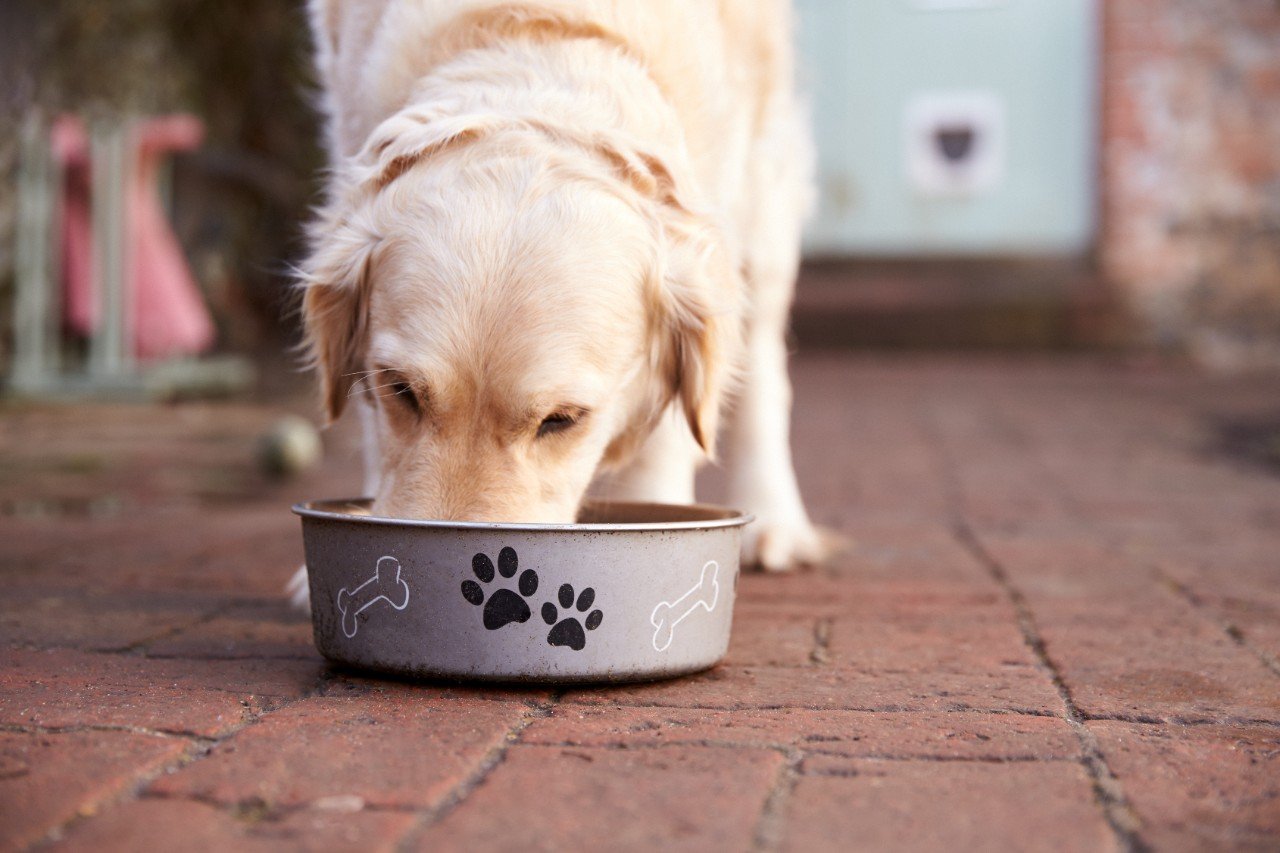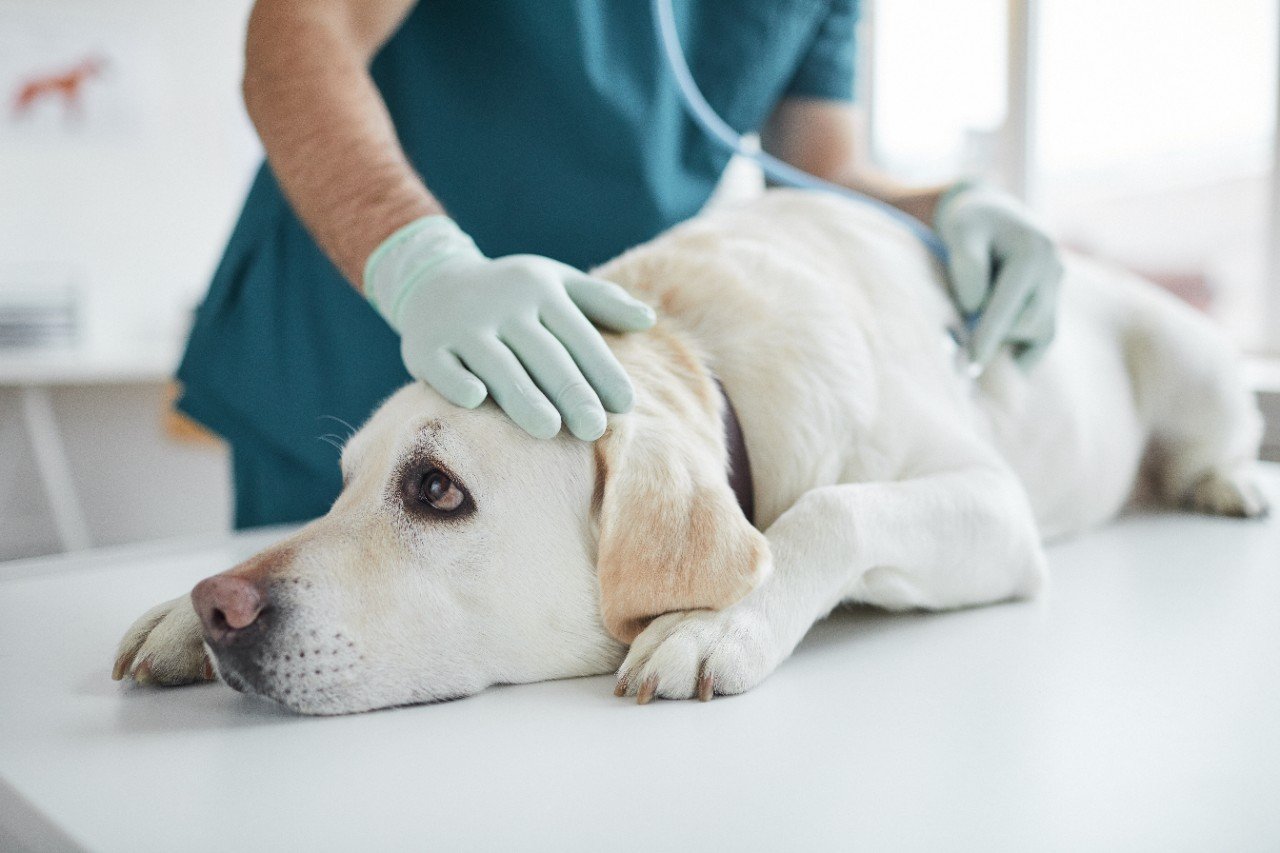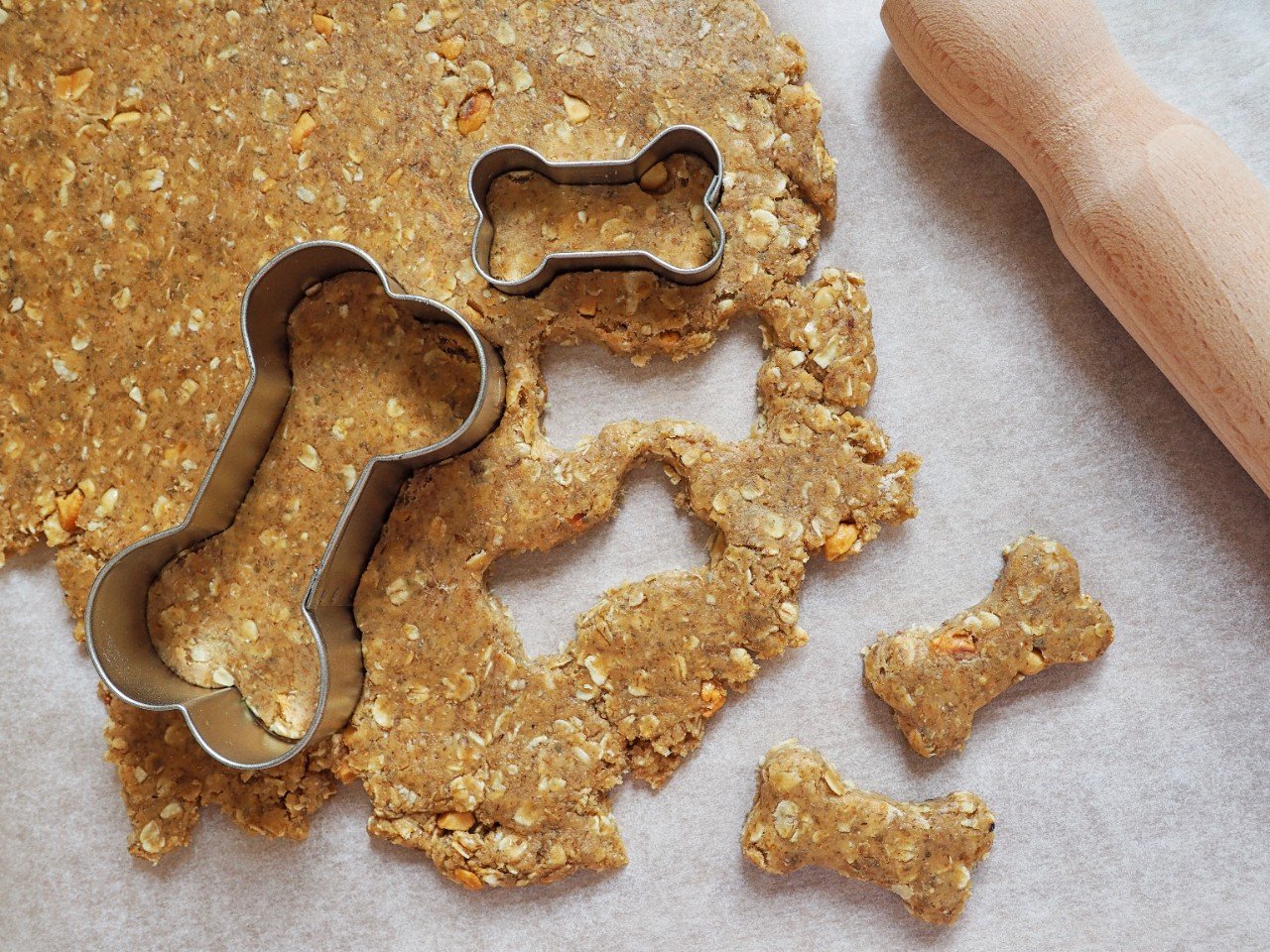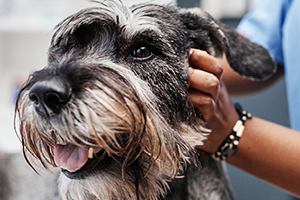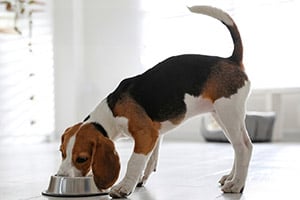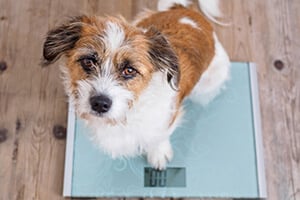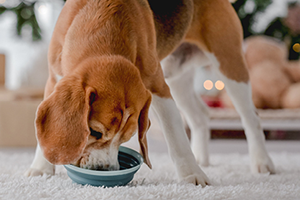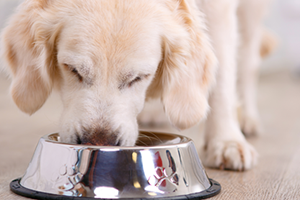If your dog refuses their food but shows an interest in your meals, or their favourite treats, then it may be that they just don’t like the food you’re dishing up.
To manage a fussy eater, avoid switching foods too often, as this can actually make the problem worse by reinforcing the idea that something better is always coming. Stick to regular mealtimes too, and if their food is left untouched after about 20 minutes, take it away and try again at the next scheduled time.
It’s also a good idea to limit treats or scraps from your own meals, as these can encourage selective eating habits. Instead, offer calm encouragement and plenty of praise when your dog does eat.
If your dog’s fussiness continues or seems to be getting worse, it’s worth having a chat with your vet. They can rule out any underlying issues and give customised advice on how to support your dog’s diet. If you have dog insurance with Petplan, you can also access expert advice via our Pet Expert Chat – simply log into your My Petplan account to access.
